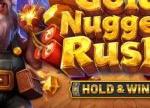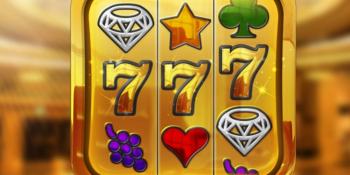Diwali, Indian Festival of Lights isn’t Complete Without Online Gambling
Posted: November 5, 2010
Updated: October 4, 2017
Hindu beliefs hold that the Goddess Parvati played dice against her husband Lord Shiva, declaring “whosoever gambled on Diwali night would prosper throughout the following year”.

For Hindus, Jains, and Sikhs, it is known variously as Deepavali, Divali, and Diwali. Many others know it more simply as the “Festival of Lights”, though of no relation to the Jewish Hanukkah. Diwali is a holiday which follows the lunar calendar. This year, it comes today, the 5th of November.
Hindu beliefs hold that the Goddess Parvati played dice against her husband Lord Shiva, declaring “whosoever gambled on Diwali night would prosper throughout the following year”.
Even though most forms of gambling are technically against Indian gambling laws, throughout India, everyone, from the poorest to big Bollywoood stars Akashay Kumar and biwi Twinkle, are hosting Diwali patta parties because Diwali wouldn’t be compelte without gambling.
India’s historic town of Sivasagar in Upper Assam will be holding lotteries for three days. Chintamoni Sharma, a town resident described the celebration saying “It is different from other lotteries in the sense that the poorest and richest can participate equally as tickets range from Re [sic] 1 to Rs 100 and prizes from 1kg of rice or 1 litre of mustard oil to motorcycles and cars.” (1 Indian Rupee is worth 2 US cents.)
Lotteries such as these are known as sithi khel, and are organized by private individuals, special interest groups, and even corporations. Typically there is one prize per game. During these celebrations, thousands of revelers release all their all their inhibitions to test their luck by buying tickets and waiting for their numbers to be called. Winners are announced and prizes are claimed on the spot.
Chinmoyee Devi, another resident described the change in Diwali saying “While gambling had always formed a part of Diwali where lakhs of rupees were gambled away in one night, it was different and acted almost like a unifying force — its USP lay in the fact that the poor and rich both could participate equally and that one had the freedom to choose from among the prizes on offer . . . . It has to be experienced to be understood — the mad rush for tickets, the elation of winning, the dejection on losing and above all, no guilt feeling as everyone knows that the money thus gained by the organizers will mostly be spent for a good cause.”
These celebrations are not just happening offline. Stakes at online gambling sites in India are also high. Non-gambling social networks, such as Facebook, Twitter, and Ibibo are being used to keep players aware of tournaments.
Indian internet poker rooms have seen Rs 6,500 buy-ins and optional Rs 5,000 top-ups and rebuys for just 90 minutes of play. Prize pools have grown as high as Rs 4.5 lakh. Texas Hold’em Poker is proving most popular. Ankur Dewani, a Diwali poker tournament organizer stated “Yes, we have noticed a huge increase in poker players. However, we do not wish to tell people about our tournaments as we do not know what sort of publicity and press it will generate and how people will react to them. We prefer the anonymity.”












